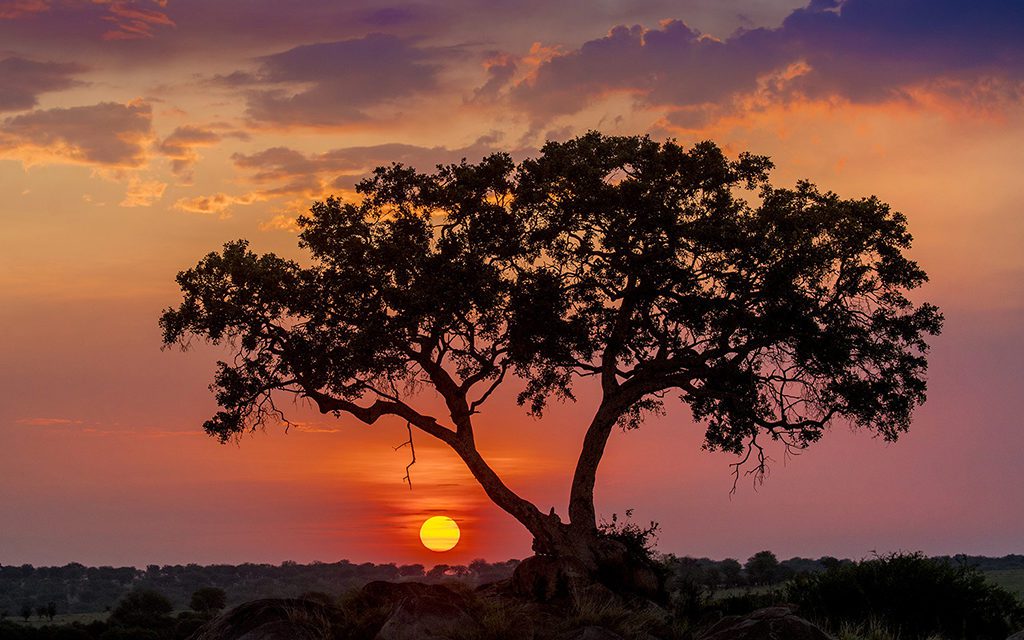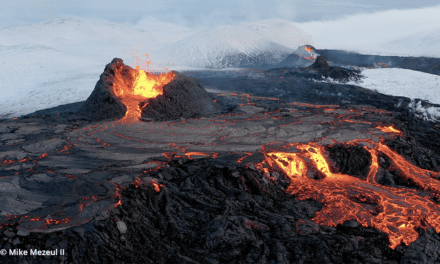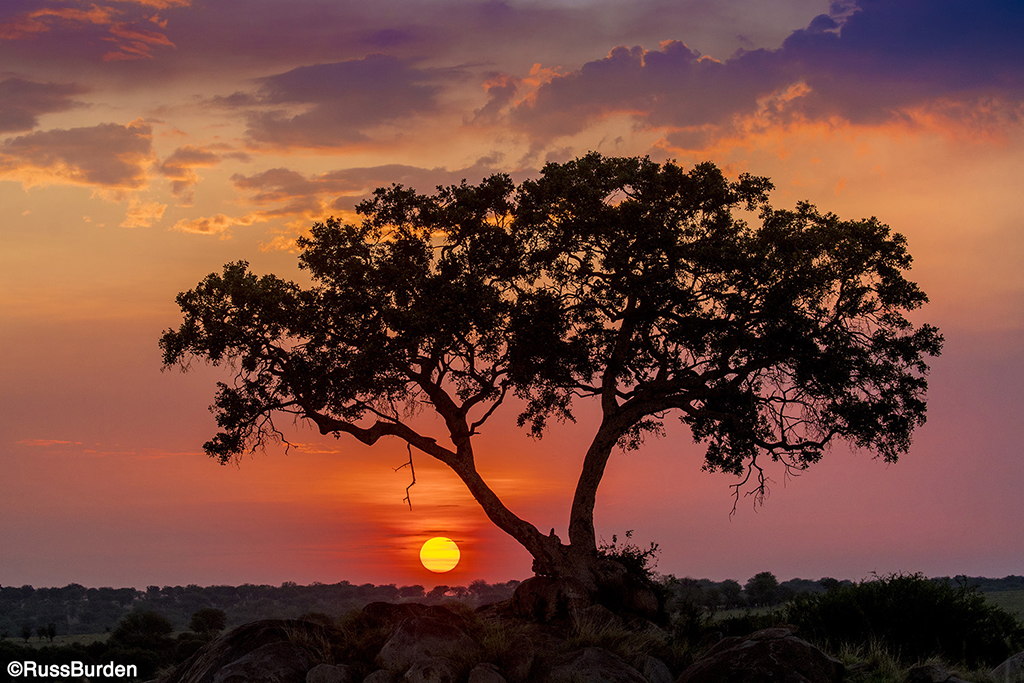
We’re all aware that the most opportune times to make nature photos are at sunrise and sunset. If you’re a regular reader of my Tip of the Week, you’ve seen the words, “It’s All About The Light.” I often profess that the “sweet light” of early morning and late evening are superb. Their color and quality are unrivaled. The warm glow, the side light and the vibrant and saturated colors they impart can’t be had at any other time of day nor can they be replicated in Photoshop. Every sunrise and sunset is different. The more often you make images during these magical hours, the sooner you’ll comprehend the above words.
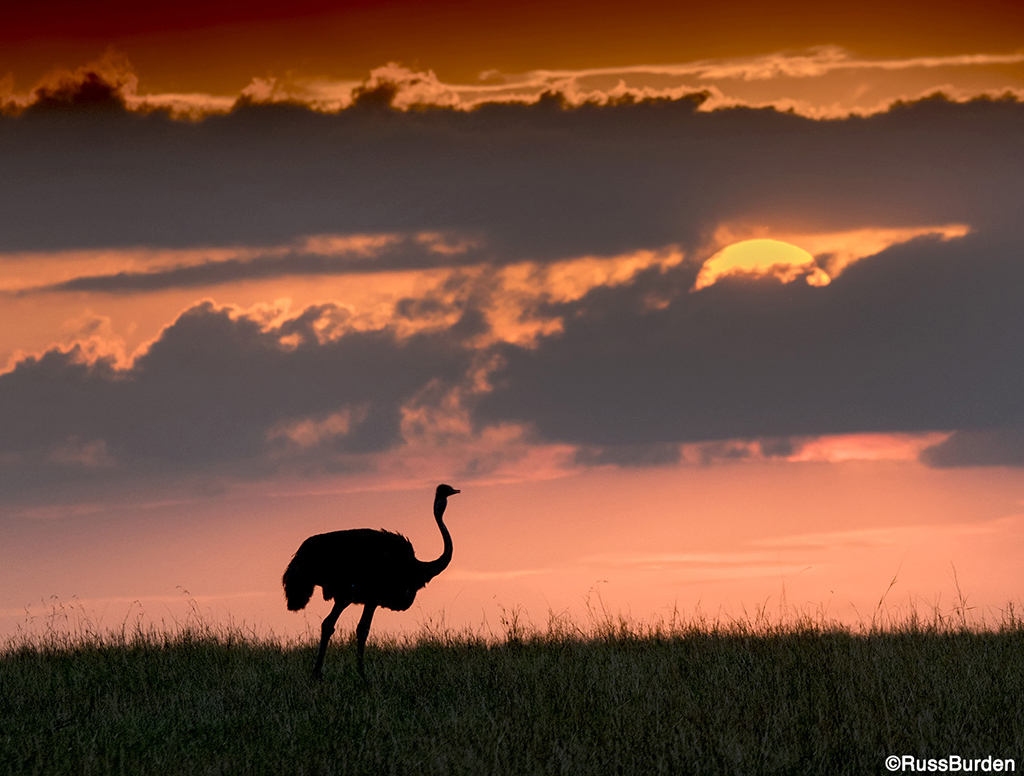
There are many ways to exploit the sun’s effect at sunrise and sunset. One option exists when clouds accompany a sunrise in the east or a sunset in the west. Vibrant colors may explode and fill the sky. A second way is to take advantage of the sweet light that falls on the landscape and bathes it in golden tones of yellow, red and orange. Finally, and the focus of this article, photograph the sun on the horizon line. As a subject unto itself, unless the color in the sky is electric, you’ll find it’s better to include an additional element to add intrigue.
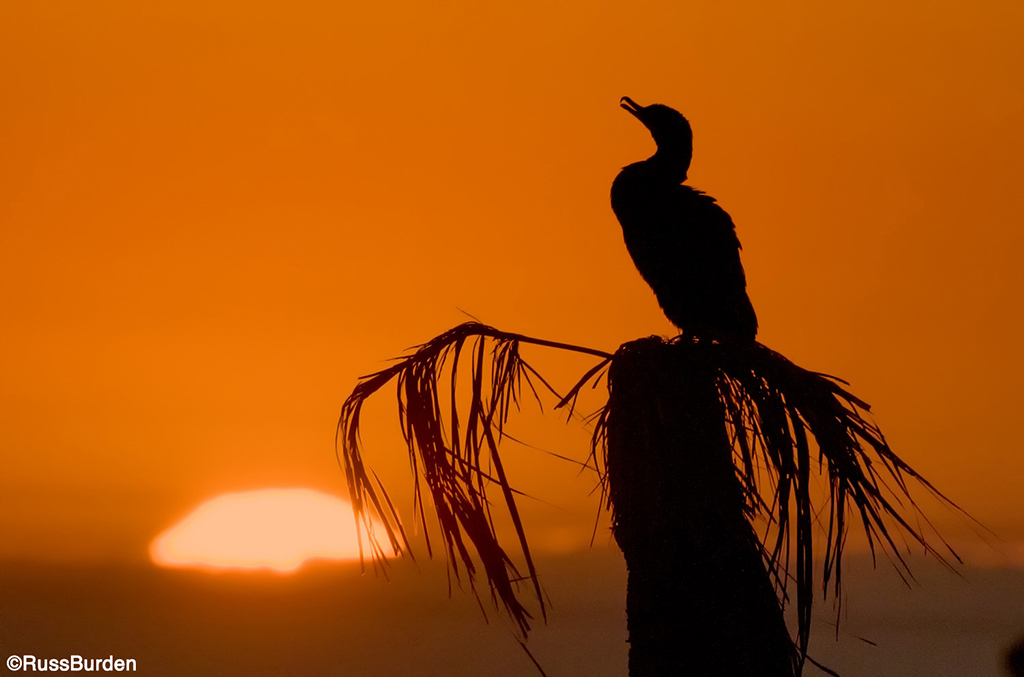
Use Clouds To Obscure The Sun On The Horizon Line
If the sun is intense, wait for most of the brightness to be diffused by a cloud, pollution, haze or another source that helps obscure it. In the image of the silhouetted ostrich, I waited until all flare disappeared through the viewfinder before I pressed the shutter. In the Serengeti tree and sun photo, I waited until the ball was low enough for atmospherics on the horizon to disperse the brightness. In the photo of the cormorant in silhouette, I used a similar strategy as in the shot of the ostrich, but because the cormorant was photographed in Florida, the moisture content in the air was higher than it is in Tanzania, so it helped soften the sun’s intensity. I also opted to use a very clean background so the bird and palm both stood out.
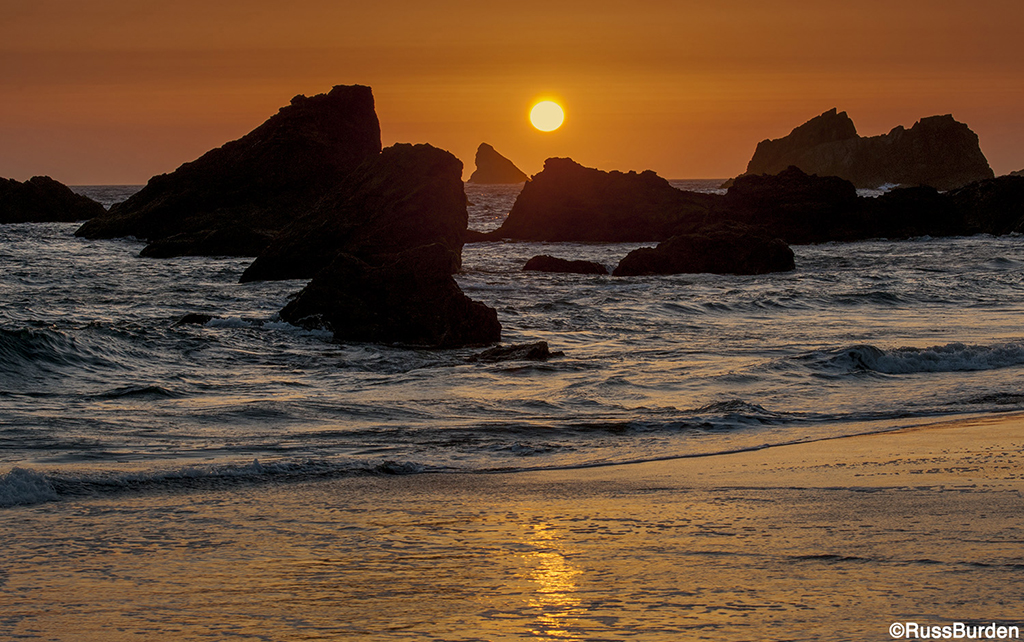
Use Haze To Diffuse The Sun On The Horizon Line
I used to travel to the Oregon coast once a year. One of my favorite locations was Harris Beach for sunset. If “the coast was clear,” I’d always look for a layer of haze to diffuse the sun on the horizon line. It enabled me to point my lens in the direction of the sun and not obtain flare. I waited for a wave to recede in the coastal sunset image so the sun’s reflection added a foreground focal point. Nowadays, my primary subject to photograph is wildlife and I’m always on the lookout to try something new. In the photo of the wildebeest, the sun is just out of frame, but the backlight on the subject’s beard, tail and rim-lit body add a fresh dimension to the image. Lastly, I love to create sunstars. Let a small portion of the sun peek out from behind an opaque subject and stop the lens down to ƒ/16. Depending on the lens, a sunstar will appear. The timing of everything worked in the photo of the snow geese in the all blue section of the sky.
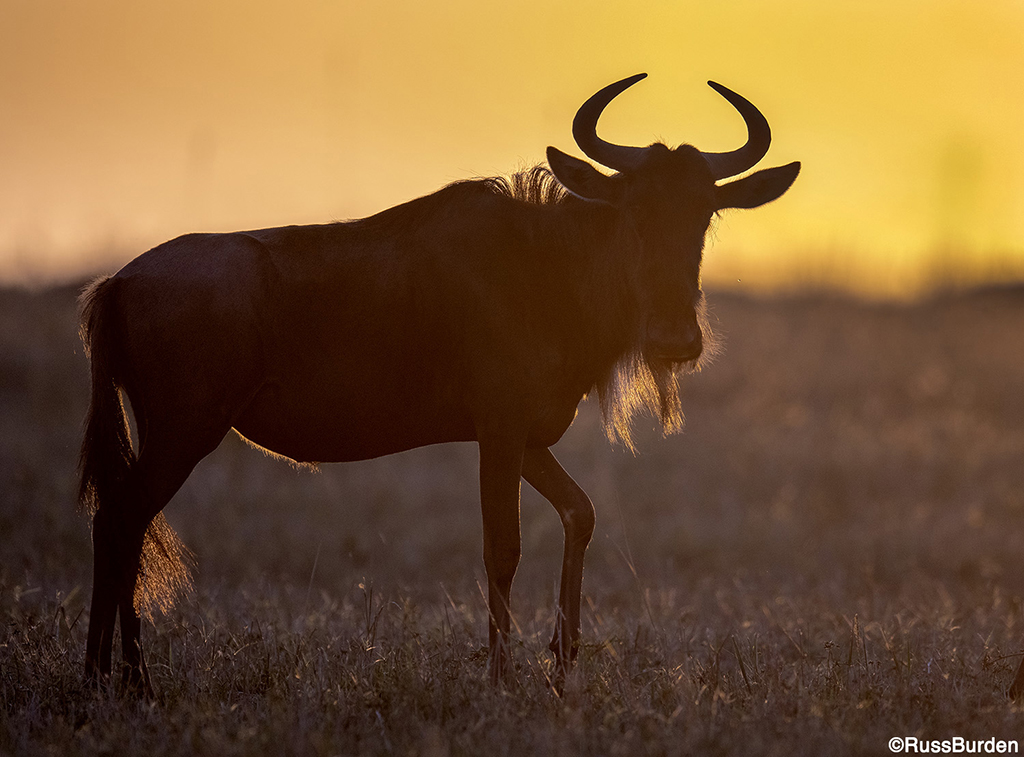
Tips For Safe And Successful Shooting
Some concerns need to be addressed if you plan to add this technique into your repertoire. First and foremost, don’t look directly at the sun through your viewfinder. The higher the magnification of the lens, the more critical this becomes. Be sure to squint when you create the composition. If there are no clouds to soften its intensity, this is even more critical. The closer the sun is to the horizon, the safer it is. To get a proper baseline exposure, take a meter reading without the sun in the frame. Check your histogram to evaluate how many stops of plus and minus compensation must be added to create a successful HDR image. The exposure may rapidly change, so check your histogram often to make sure you don’t lose detail in important areas, especially in the more delicate warm hues of sunrise and sunset.
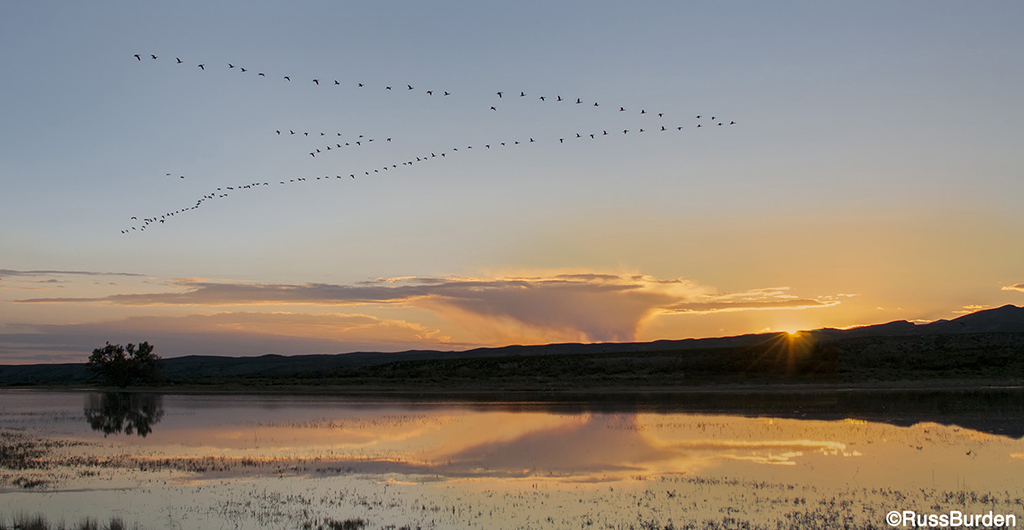
To learn more about this subject, join me on a photo safari to Tanzania. Visit www.russburdenphotography.com to get more information.
The post Shooting The Sun On The Horizon Line appeared first on Outdoor Photographer.

